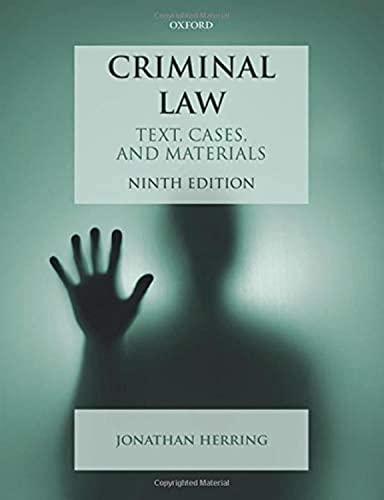Question
can you make this an introduction: In Australia, laws exist to address the serious offence of genocide. The Genocide Convention Act 1949 and the Criminal
can you make this an introduction: In Australia, laws exist to address the serious offence of genocide. The Genocide Convention Act 1949 and the Criminal Code Act 1995 have both incorporated genocide into the Australian legal framework, allowing for the prosecution of individuals found guilty of this crime. However, these laws apply only to acts of genocide committed within Australia's jurisdiction or by Australian citizens abroad.
When Australia becomes aware of allegations of genocide elsewhere in the world, it can refer the case to the International Criminal Court (ICC) if the alleged crimes occurred in a country that is a signatory to the Rome Statute. However, if the alleged acts of genocide took place in a non-member state, the process becomes more complicated. In such instances, Australia would need to persuade the United Nations Security Council to refer the case to the ICC, which may be challenging due to the veto power held by its five permanent members.
Additionally, Australia can pursue legal action under its domestic laws against individuals accused of genocide. The Genocide Convention Act of 1949 and the Criminal Code Act of 1995 not only incorporate genocide into Australian law but also allow for the prosecution of Australian nationals or residents accused of committing genocide overseas. However, the success of such prosecutions depends on Australian authorities' ability to arrest the accused individuals and gather sufficient evidence for a conviction.
Step by Step Solution
There are 3 Steps involved in it
Step: 1

Get Instant Access to Expert-Tailored Solutions
See step-by-step solutions with expert insights and AI powered tools for academic success
Step: 2

Step: 3

Ace Your Homework with AI
Get the answers you need in no time with our AI-driven, step-by-step assistance
Get Started


